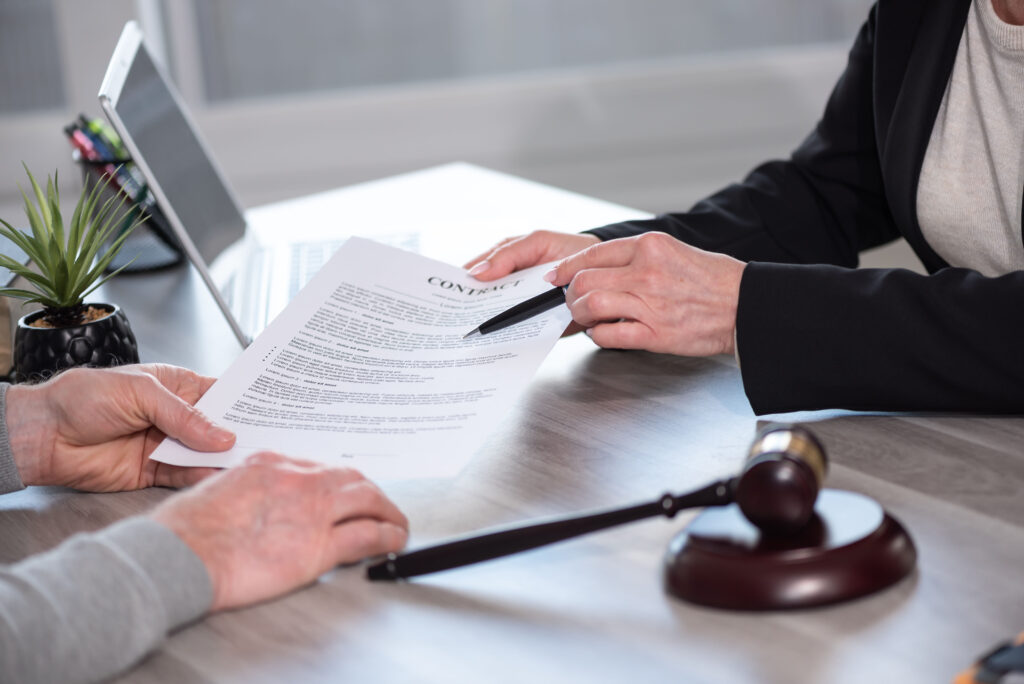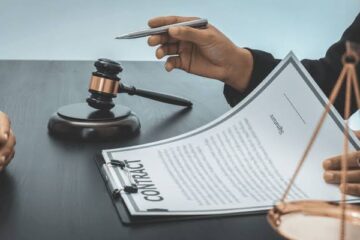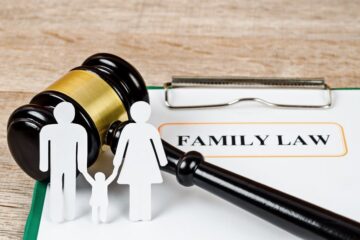If property owners fail to maintain safe conditions and warn visitors of hazards, and someone gets injured as a result, the injured party may file a premises liability claim. The National Floor Safety Institute shows that slip and fall accidents are common in places like stores and sidewalks, resulting in over 1 million ER visits annually in the US or 12% of total falls.
According to premises liability lawyer Tye Smith, if a property owner is found at fault for your injuries, they’re legally and financially responsible for any economic and noneconomic damages you’ve suffered from that accident. Economic damages are quantifiable financial losses, while noneconomic damages are emotional or intangible losses.
If you’re in this situation, consulting a personal injury attorney can help you evaluate your case and take appropriate legal action. Let’s talk about the steps you should take if you’re injured on someone else’s property.
Definition of Premises Liability
Premises liability refers to the legal responsibility of a property owner or occupier to ensure the safety of those on their property. This means that you’re required to take reasonable steps to prevent any harm or injuries that may occur on your premises. Whether you own a residential property, a commercial building, or even a public space, you must maintain the premises in a safe condition.
Under premises liability law, you can be held accountable for any accidents, injuries, or damages that occur on your property due to negligence or failure to meet the required safety standards. This includes slip-and-fall accidents, inadequate security measures, dangerous conditions, and even animal attacks.
Premises liability laws vary from state to state, so you need to be aware of the specific laws that apply to your jurisdiction. In it, property owners or occupiers are expected to regularly inspect their premises, address any potential hazards, warn visitors about potential dangers, and carry out appropriate maintenance and repairs.
Types of Accidents Covered by Premises Liability
Premises liability covers a range of incidents that can occur on someone else’s property, such as:
- Slip-and-Fall Accidents: These accidents can happen when you slip, trip, or fall due to hazardous conditions like wet floors, uneven surfaces, or poorly maintained walkways.
- Inadequate Security Incidents: If you’re assaulted or robbed on someone else’s property due to inadequate security measures, the property owner may be held liable.
- Defective or hazardous equipment: accidents caused by broken elevators or escalators.
- Other accidents, such as dog bites, swimming pool accidents, and injuries caused by falling objects.
A Glendale pedestrian accident lawyer says that if you’ve been injured in a pedestrian accident and it occurred on private property or due to unsafe conditions, like poor lighting, a lack of signage, or an obstructed view, you have the right to take legal action and the property owner might also be held liable under premises liability laws.
Determining Liability in Premises Liability Cases
Determining liability in premises liability cases requires a careful examination of the details of the accident and some factors will be considered if you want someone to be responsible for injuries sustained on their property. These are the factors that can contribute to shared liability or even absolve the property owner or occupier of responsibility:
- The legal status of the injured party must be determined. Were they an invitee, licensee, or trespasser? The duty of care owed to each category varies.
- Assess the condition of the premises. Was the property owner or occupier aware of any dangerous conditions that could potentially cause harm? Did they take reasonable steps to fix or warn about these hazards? These questions help determine if the property owner or occupier breached their duty of care.
- The injured party’s own actions and negligence. Were they behaving recklessly or disregarding warning signs? Were they fully aware of the potential dangers present on the property?
Multiple parties may be held liable for an accident. If a contractor is hired to perform work on the premises and their negligence leads to an injury, both the property owner and the contractor may be deemed liable.
Steps to Take If You’re Injured on Someone Else’s Property
If you’re injured on someone else’s property, you can protect your rights by doing a few things.
- Seek medical attention right away, even if your injuries seem minor. Not just for your health, it also creates a record of your injuries that can be used as evidence later on.
- Report the incident to the property owner or manager. Make sure to document the details of the incident, including the date, time, and any witnesses present.
- Take photographs of the scene and your injuries, if possible. It’s also advisable to get contact information from any witnesses.
- Preserve any evidence related to the incident, such as torn clothing or damaged personal belongings.
- Keep track of all medical expenses and any other costs incurred as a result of the incident.
- Consult with a personal injury lawyer who specializes in premises liability cases. They can guide you through the legal process, protect your rights, and help you seek the compensation you deserve.
Understanding Your Rights in Premises Liability Cases
When you’re injured due to a hazardous condition on someone else’s property, you may be entitled to compensation for your injuries and related expenses. The property owner or occupier has a legal duty to maintain a safe environment for visitors, and if they fail to do so, they may be held liable for any injuries that occur as a result.
To determine if you have a premises liability case, you must establish that the property owner or occupier was negligent in maintaining the property. This means proving that they knew or should have known about the dangerous condition and failed to take reasonable steps to fix it or warn visitors about it.
In a premises liability case, you may be entitled to various forms of compensation, including medical expenses, lost wages, pain and suffering, and other damages. Consult with an experienced premises liability attorney who can help you understand your rights and assess the strength of your case, gather evidence, negotiate with the responsible party’s insurance company, and fight for the compensation you deserve.
Conclusion
If you suffer an injury on someone else’s property, whether it’s a slip and fall or an animal attack, knowing your rights and the steps to take is important. By determining liability and taking appropriate action, you can seek compensation for your injuries and hold property owners accountable. You have the right to a safe environment, and premises liability laws are in place to protect you.
Keep an eye for more latest news & updates on Hint Insider!




